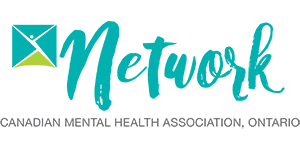 Navigating Ontario’s mental health and addictions services can often be a challenging, at times bewildering experience, even for knowledgeable service providers and sector professionals. Keeping track of these wide range of resources is not only important for the service users who need to access them, but also for the policymakers who have to make strategic decisions regarding their provision.
Navigating Ontario’s mental health and addictions services can often be a challenging, at times bewildering experience, even for knowledgeable service providers and sector professionals. Keeping track of these wide range of resources is not only important for the service users who need to access them, but also for the policymakers who have to make strategic decisions regarding their provision.
Maintaining accurate and timely information on these programs is thus a crucial service, one that ConnexOntario has been doing for the past 25 years.
“Our greatest strength is our constant approach to keeping our data relevant and up to date,” says Brad Davey, ConnexOntario’s Chief Executive Officer.
With this approach central to their work, staff at ConnexOntario maintain Ontario’s most comprehensive health services database, tracking over 3,200 mental health and addictions programs hosted by more than 450 organizations in 1,300 locations across the province.
In addition to providing statistical data for planning and development around resources, ConnexOntario also operates a crisis line as well as providing free, confidential health services information 24/7 for anyone with addictions and mental health issues.
Relationships key to relevancy
Funded by the Ontario government, ConnexOntario keeps its information current through a large, connected network of relationships with stakeholders. Any changes to a program – hours, location or availability – rapidly triggers a series of updates and emails to inform professionals across the human services sectors.
Professionals who depend on timely and accurate health services information, ranging from the location of Naloxone kits to the availability of forensic beds in psychiatric inpatient units, can use ConnexOntario’s database to make better decisions and engage in better research and analysis.
ConnexOntario responded to more than 1,700 specific requests for information last year alone from the provincial and federal governments, Local Health Integration Networks, social planning bodies, service providers, researchers and the general public.
While his organization is committed to keeping its information as relevant and up to date as possible, Davey notes that the nature of mental health and addictions care can provide some fundamental challenges to data collection.
“Sometimes you have to estimate the availability of resources given their nature,” he says. “You can’t always predict how long a user will need a service.”
But by providing its data to service planners and decision makers who rely on quality information, ConnexOntario continues to play an indispensable role in connecting people and organizations to the health and human services they need.
For more information on ConnexOntario’s health information services including how to make a data request, visit connexontario.ca. ConnexOntario’s Drug and Alcohol Helpline can be reached at 1-800-565-8603 and their Mental Health Helpline can be reached at 1-866-531-2600.
Joseph Szamuhel is Project Manager, Human Services Justice Coordinating Committee Secretariat at Canadian Mental Health Association, Ontario.
